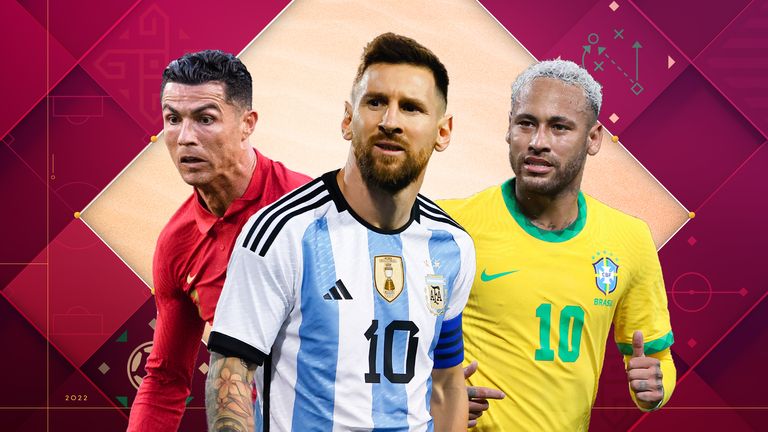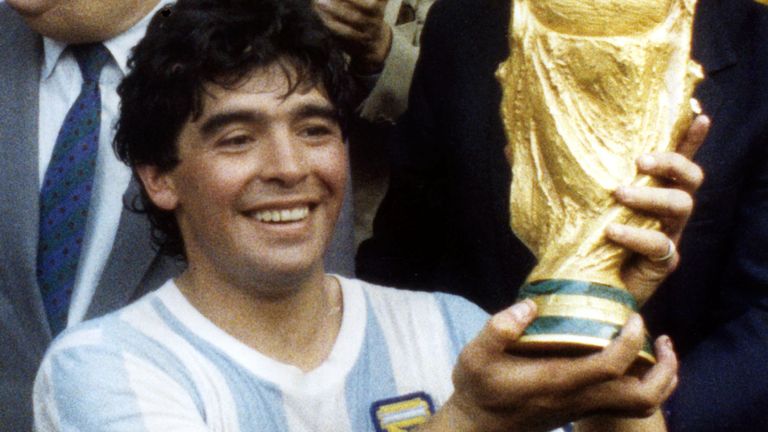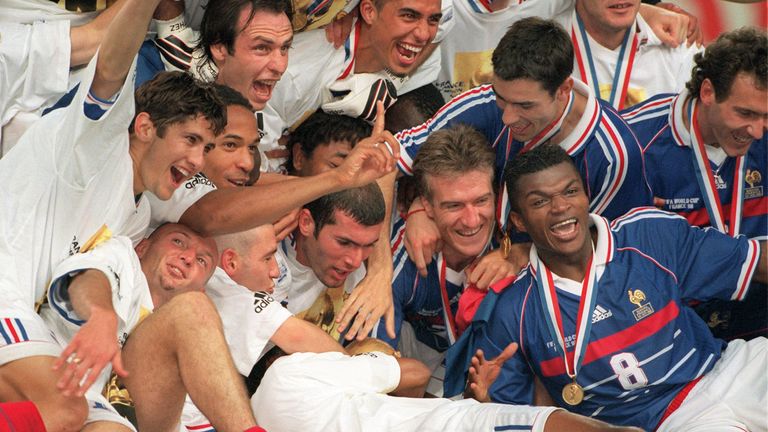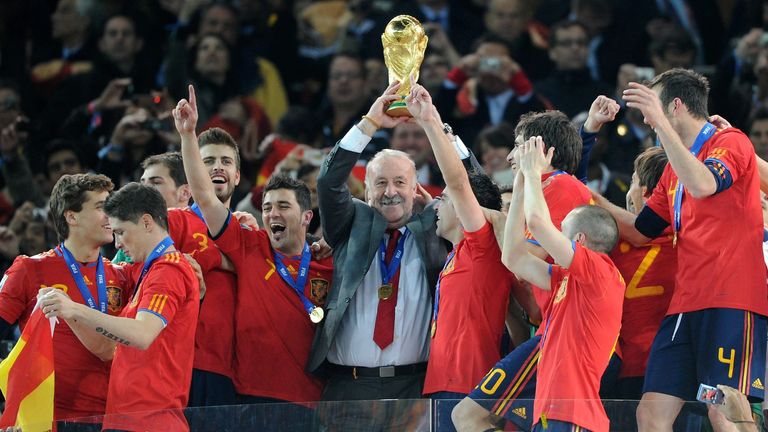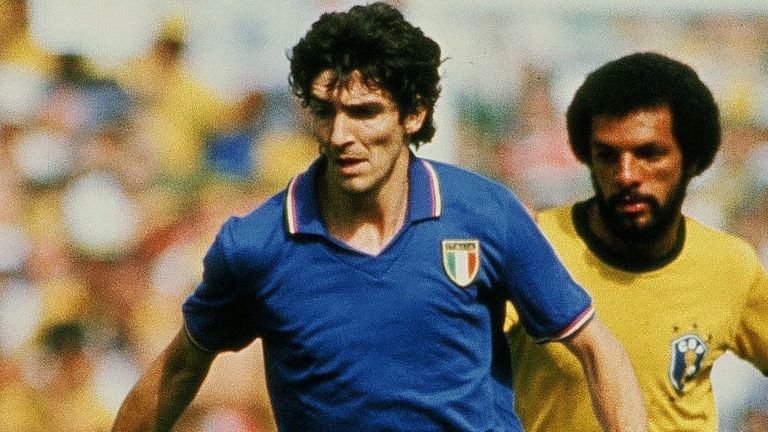World Cup quarter-finals: Still time for Lionel Messi, Cristiano Ronaldo and Neymar because the real stuff starts now
Twenty-four of the 32 teams at the 2022 World Cup are out but for the eight nations remaining, the tournament might just be getting started. Adam Bate on why history shows us that what happens next will define careers, not what we have seen so far in Qatar...
Friday 9 December 2022 18:31, UK
Spain began this World Cup with seven goals against Costa Rica. That had people purring. Now they are out. England have done enough to excite but Kylian Mbappe's France stand in their way. The quality of Brazil has tempered expectations for both.
But for fans of any team left in this World Cup, hope remains despite the hoopla reserved for some. Portugal came to the party in the final game before the quarter-finals, underlining just why they say the tournament starts now. History shows it to be true.
In the past, eventual winners have limped through the group stage, many more barely showing themselves. There is a famous golden boot winner who did not even see a minute of action until the quarter-finals. The stuff of legend, that tends to happen later.
Nobody took over a World Cup quite like Diego Maradona in 1986. His brave and brilliant performance against Uruguay in the round of 16 is remembered fondly in Argentina, while his only goal before that quarter-final came in a draw with Italy.
But in the early stages of Mexico '86, the focus was not on Carlos Bilardo's side. It was Brazil who scored nine without reply in their first four games. Bilardo had been criticised. "Diego himself said to me, 'We are on our own.' And look what happened then."
Maradona's two goals against England transformed his life. There were two more in what was arguably an even better performance in the semi-final against Belgium. The assist for Jorge Burruchaga's winner in the final against West Germany completed the story.
Perceptions can shift late in tournaments. Zinedine Zidane was the two-goal hero of the 1998 World Cup final. Before the quarter-final, Zidane had started fewer games than Bernard Diomede. Sent off against Saudi Arabia, he was banned for two of them.
"I do not have the impression that I have failed in any way in this World Cup," said Zidane after the semi-final. The fact that he felt the need to say it at all is revealing. "It is true that I have not scored, but I have one match left to do it." And do it he did.
Zidane's second World Cup red card came, notoriously, in the 2006 final against Italy, a nation that has done more than any other to popularise the argument that starting slowly need not be a problem. In 1982, they drew their first three games and still won.
When Italy stuttered into the quarter-finals thanks to a stoppage-time penalty against Australia in 2006, few fancied a repeat. Defending champions Brazil were favourites. Home advantage favoured Germany. Argentina had been playing the best football.
Marcelo Lippi was being pilloried by the Italian press. "Lippi tried to tear the dream from us," screeched Corriere dello Sport after the round of 16. But the team took shape. Most of Italy's scorers in the group stage did not even start the final. It all came together.
There were similar doubts about Spain in 2010 when they lost to Switzerland in their first game. "Spain played without conviction," said Luis Aragones, the former coach who had guided the team to victory at Euro 2008. Vicente del Bosque's caution was criticised.
Ultimately, it did not matter. Spain finished the tournament with only eight goals - and the World Cup trophy. Argentina had scored more than that by half-time of their round of 16 game but they were back home long before Spain beat the Netherlands in the final.
The Dutch are remembered with little fondness following their robust treatment of Spain that night. Even so, they had won six games out of six to get there. Curiously, their first defeat came in the final game of the World Cup. Spain's had come in their first.
Germany grasped this in 2014 after needing extra-time to beat Algeria. "All that matters is that we are in the quarter-finals," said Per Mertesacker. "You will get these games at a tournament," said head coach Joachim Low. "It is about winning." They won it all.
In 2018, France had one-goal wins over Australia and Peru, drew with Denmark, and were losing to Argentina in the last 16 before Benjamin Pavard's brilliant strike. They had the worst goal difference of any quarter-finalist but were later seen as worthy winners.
As for the individuals, Kylian Mbappe and Antoine Griezmann both scored in the final but could not snatch the golden boot from Harry Kane. All six of the England captain's goals at that World Cup came before the quarter-final stage - but it is not always that way.
Paulo Rossi famously failed to score until Italy's de facto quarter-final against Brazil in 1982. He finished with six goals. Croatia's Davor Suker won the award in 1998 but who remembers now that he had scored fewer than Mexico's Luis Hernandez before the last eight?
The ultimate individual example, of course, is provided by the only man to have scored a hat-trick in the biggest game of them all. Going into England's quarter-final in 1966, Sir Geoff Hurst had not kicked a ball at the tournament let alone scored. But it was not all over.
Fifty-six of the 64 games have now been played. The men and the moments that will define this World Cup are still to come.


